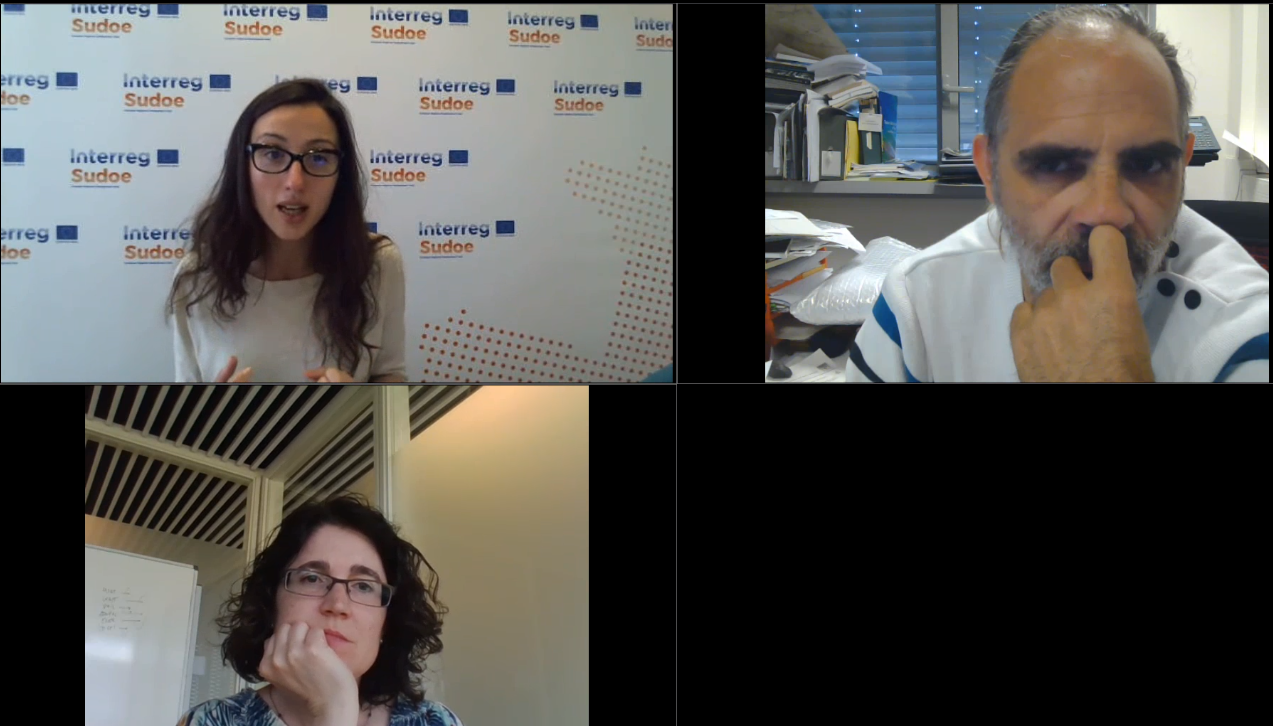Communication
Sudoe News
Pollution: "We should keep ensuring the dialogue between scientists and citizens"
Categoría Management of projects approved
This week, we had the chance to chat with Dr José Darrozes, project manager of SOIL TAKE CARE project, and Dr. Irene Jubany Güell soils’ projects manager at Eurecat, on SOIL TAKE CARE - a project on soils' pollution by heavy materials which produces mappingon environmental and health risks.

Interreg Sudoe (IS): What is SOIL_TAKE_CARE about?
José Darrozes (JD): We observe that in Europe, there are more than 30 000 sites contaminated by mines or industries and there's no proper policy to regulate those sites. We talked with local actors and we saw that studies on soils' pollution are very expensive. Thus, the idea here is to map the industrial and mining contamination and to provide monitoring low-cost solutions. Hence, we developed tools which were already used in foreign countries - and not in Europe due to the lack of information, in order to describe the risks for health.
IS: Which is the innovation provided by SOIL TAKE CARE ?
JD : Mappings were already used but they were very expensive. Here we use in-situ sensors that allow to monitor a specific area, according to the meteorological conditions of the ground and check the evolution over the years, something that was not made in the past due to the costs.
IS: You highlight that it is a "low cost" oproject : when a city, such as Viviers, introduces these methods of soils' decontamination, how much can it cost?
JD : In the case of Viviers, with Soil_TAKE_CARE, the costs were approximiatley between 20000-30000 €. However, we had to make measures to validate our methodologies, something that is not required anymore. Our methodology is currently under validation and thus, the monitoring costs will be reduced.
IS : Which were the benefits of working at transnational level?
JD: First of all, from a political point of view, the situations are different according to the countries. For example, the interest in this topic in Portugal is quite new. The political factor has highlighted the importance of the transnationality. On the other hand, the points of view and the specialities of the project's partners are very different but also complementary. Thus, working together gave us the opportunity to inspire, acquire new know-how and carry out more comprehensive studies.
Irene Jubany (IJ) : Our mappings address problems that affect France, Spain and Portugal. So far, the way to study these problems was quite local. Thus, this cooperation allowed broadening our points of view. In addition, concerning the social aspect and the study of the population, this cooperation gave us the opportunity to see how the same situation is experienced based on the different cultural realities.
IS : What did you discover thanks to SOIL_TAKE_CARE ?
IJ: We could apply methods of risk calculations that already existed but in this case, they are applied to real cases. This gave us the opportunity to better calculate the risks and, consequently, to better depollute the affected areas.
JD : Regarding the social part, we have already observed that there are two types of population: a first one that considers the pollution is not important – and this is generally due to the fact that it is not linked with economic benefits, and another part of the population that is more sensitive to the pollution, in general mothers. Unfortunately, it is very difficult to change the mentality even if there are studies showing the reality of the contamination.
IS: You conduct researches on soils pollution related to activities on which there was no real risks information until recently. How could we better inform citizens and raise awareness on this reality?
IJ : As scientists we have to improve our way to communicate and communicate to people on the ground (mayors, practitioners, etc.). This is a very important work.
IS : Today we talk a lot about the concept of “collapsology”, communities are mobilizing for climate issues, etc. In your opinion, which kind of small actions could we undertake, at political and citizen levels, in order to reduce soils' pollution?
IJ : We have to keep inspiring the dialogue between scientists and citizens. For instance, if we focus on recycling, there have been several campaigns on this topic and everyone knows now what we are talking about. In the case of soils pollution, it is different. A lot of people do not know what we are talking about. Some people live next to polluted areas and they are not aware of the impact on their lives. Thus, it is important that public administrations get involved because soil pollutions has a direct and indirect impact on our health.
More info : http://soiltakecare.eu/fr/



